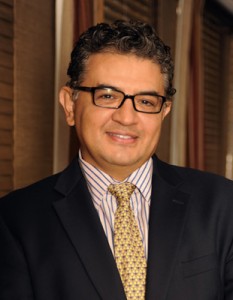Yes. According to studies by Jairo Fuertes, Ph.D., associate professor, and Nassau Nassau University Medical Center.

Dr. Jairo Fuertes
Patient satisfaction has been gaining prominence in healthcare, and for good reason. Studies show that more satisfied patients are more likely to stick to treatment plans and experience better outcomes. The Patient Protection and Affordable Care Act—a.k.a. Obamacare—has made patient satisfaction a top priority for hospitals. With the legislation, hospitals stand to gain or lose Medicare payments depending in part on the results of patient surveys. Jairo Fuertes, Ph.D., associate professor in the Gordon F. Derner Institute of Advanced Psychological Studies, is working with one hospital to improve patient satisfaction and outcomes by applying the working alliance theory from psychotherapy.
Just as it sounds, the working alliance is the foundation of a therapeutic relationship—the degree to which a patient trusts a therapist and how much they agree on goals and methods. Dr. Fuertes commented that “the most studied relationship out there is the therapeutic relationship.” Exhaustive research has proven that the alliance in psychotherapy is conducive to people getting better. Dr. Fuertes theorized that the framework could also help scholars and caregivers understand levels of patient satisfaction and treatment adherence in medicine.
In two studies—one with the chief of rheumatology at Nassau University Medical Center (NUMC) and the other with the chief of nephrology at NUMC—Dr. Fuertes and his collaborators, including Derner Institute doctoral candidates Mariela Reyes and Arielle Toporovsky, used surveys to determine patients’ views of their working alliances with doctors, their outcome expectations and degree of satisfaction with their care. They also evaluated each patient’s adherence to his/her prescribed treatment. In the nephrology study, the team also gathered laboratory data to verify patient compliance and adherence.
The results were clear. “The alliance is definitely very strongly associated with patient satisfaction, which is increasingly an index of quality of care,” Dr. Fuertes said.
The findings propelled Dr. Fuertes to take the research to the next level. This past February, he worked with NUMC to implement a workshop to train residents on working alliance skills as a way of helping them gain the trust and liking of their patients and establishing agreed-upon tasks and goals, he explained. The workshops were implemented in a randomized trial format—given to some residents but not all. Dr. Fuertes and his collaborators are gathering feedback from patients whose doctors participated in the workshop as well as those whose doctors were in the control group. “If we find that training makes a difference, then we’ll provide training to all residents,” Dr. Fuertes said.
Dr. Fuertes’ ultimate goal is to embellish medical education. He would like to see the medical curriculum place a heavier emphasis on the doctor-patient relationship using the working alliance theory. “I don’t think there’s any resistance to that,” he said. “It’s just a question of how to do that and providing the evidence that we should apply and further study this particular approach.”
For further information, please contact:
Todd Wilson
Strategic Communications Director
p – 516.237.8634
e – twilson@adelphi.edu